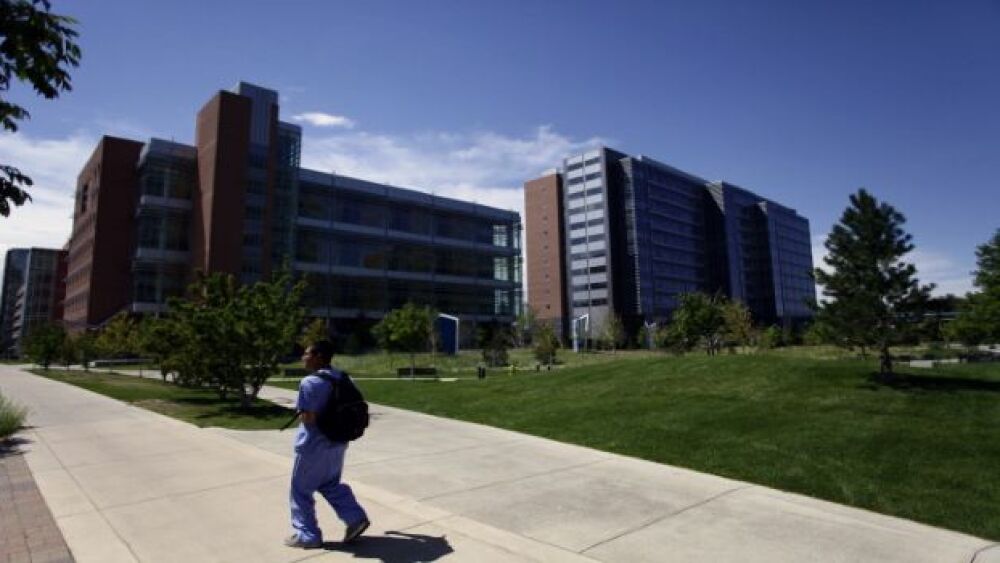Dr. Terry Fry, M.D., a leader in chimeric antigen receptor T-cell (CAR-T) therapies and senior vice president, head of T-cell therapeutics at Sana Biotechnology, will be heading the newly created Gates Institute.
Joshua Lott/Getty Images
Dr. Terry Fry, M.D., a leader in chimeric antigen receptor T-cell (CAR-T) therapies and senior vice president, head of T-cell therapeutics at Sana Biotechnology, will be heading a newly created Gates Institute. The state-of-the-art facility will be on the University of Colorado Anschutz Medical Campus, where Fry is also a clinical professor of pediatric oncology.
The Gates Institute is being driven by a philanthropic investment from the Gates Frontiers Fund and CU Anschutz. It is expected to grow to $200 million over the next five years. The campus also has the Gates Center for Regenerative Medicine and Gates Biomanufacturing Facility.
The Gates Frontiers Fund was founded by Charles C. Gates and is being represented by co-trustees Diane Gates Wallach and John Gates.
“It takes a dynamic, innovative medical ecosystem for an institute like this to thrive and be successful,” Diane Gates Wallach said. “And that’s what makes CU Anschutz so unique. Its outstanding educational facilities and world-class researchers share a campus with two top-ranked hospitals.”
Fry indicated that he views the Gates Institute as an opportunity to extend the successes of cellular therapy in cancer to diseases of the skin, eyes, heart and joints, as well as other indications.
“I’m looking forward to advancing the important work started at the Gates Center as we evolve into an institute focused on regenerative, cell and gene therapies,” Fry said. “This is an incredible opportunity to help patients facing serious health issues and will change the face of medicine as we know it. This is a pivotal moment for the CU Anschutz Medical Campus, Colorado, and the region. We will look back at the creation of the Gates Institute in the not-too-distant future and be able to point to therapies and cures made possible through this monumental commitment.”
The Institute is currently being directed by Dennis Roop, Ph.D., professor of dermatology, who will continue his research at the institute.
Fry noted, “We are at a point where it’s pretty clear that cell and gene therapies are going to ultimately change the face of medicine. I think it’s going to take time, but there’s been tremendous progress. The technologies will require close partnerships between academic institutions and biotechnology companies. This is the type of investment that has the potential to put CU Anschutz on the map in this space — and, actually, I would say, the University of Colorado more broadly. This is really about leveraging the scientific excellence in the region to develop medicines that will benefit patients.”
The Gates Family Foundation was created in 1946, where it has evolved from a corporate and community well-being initiative of the Gates Rubber Company to a private family foundation. It invests in Colorado-focused projects with an emphasis on public education, healthy lifestyles, community enrichment, connection to nature, and stewardship of the state’s natural inheritance.
“The Gates Institute will make it possible for our faculty to achieve the vast potential of cell and gene therapies,” stated Dr. John J. Reilly Jr., M.D., dean of the University of Colorado School of Medicine and vice chancellor of health affairs at CU Anschutz. “With previous support, we have recruited talented faculty and staff, and we have invested in state-of-the-art equipment. With this investment, we will build on that foundation so our scientists can develop a new generation of therapies that allow our clinicians to offer hope to those facing serious disease.”





